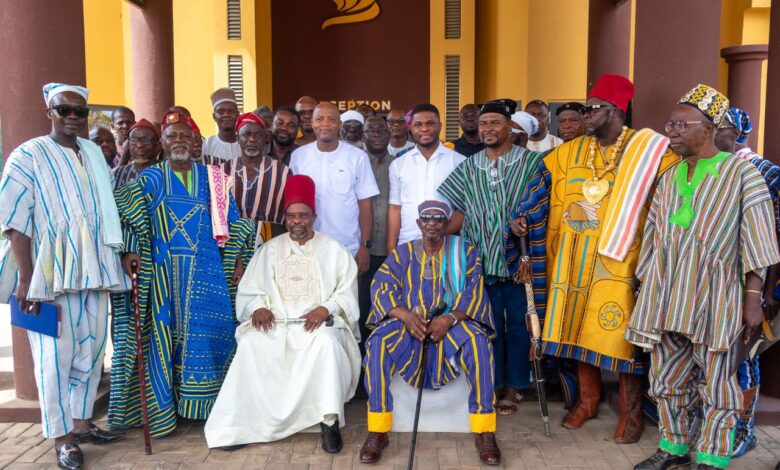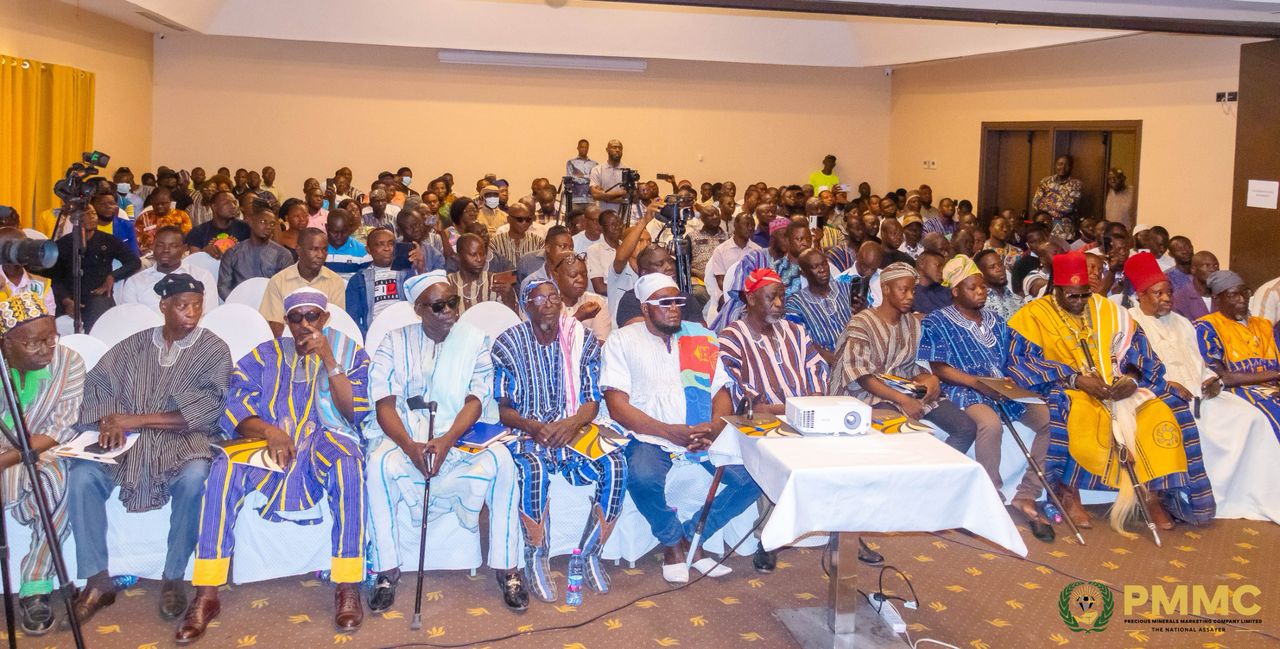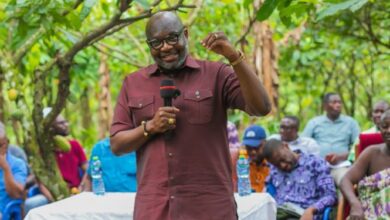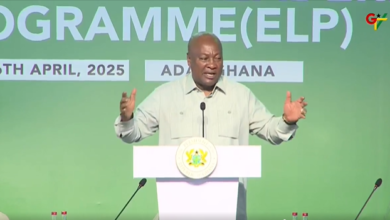Goldbod Technical Committee Holds Successful Stakeholder Engagement in Bolgatanga
Goldbod Technical Committee Engages Small-Scale Miners, Gold Dealers, and Chiefs in Bolgatanga to Discuss Sustainable Mining Practices

- The Goldbod Technical Committee hosted a successful stakeholder engagement session in Bolgatanga
- The engagement aimed to foster collaboration
- They underscored the importance of integrating traditional practices with modern mining regulations
On Tuesday, March 26, 2025, the Goldbod Technical Committee hosted a successful stakeholder engagement session in Bolgatanga, located in the Upper East Region of Ghana.
The meeting brought together a wide range of stakeholders, including small-scale miners, gold dealers, traditional Chiefs, and other key figures in the mining industry, all gathered to discuss matters related to the gold mining sector and its impact on the region.
The engagement aimed to foster collaboration, dialogue, and understanding between the various groups involved in mining activities, ensuring that all voices are heard as the sector continues to evolve. It also provided a platform for stakeholders to share their concerns, offer suggestions, and discuss the challenges faced by small-scale miners in the area.

During the session, representatives from the Goldbod Technical Committee, a body dedicated to overseeing and guiding sustainable mining practices, took the opportunity to outline the committee’s ongoing efforts to improve the mining sector, particularly the gold industry.
The committee’s focus is on promoting responsible mining practices that minimize environmental impact, ensure fair labor practices, and support the growth of the local economy.
In his address, the committee’s spokesperson emphasized the importance of formalizing small-scale mining operations and the need for sustainable approaches to gold extraction.
He highlighted the committee’s role in assisting miners in transitioning from illegal mining practices to licensed, regulated operations that could offer more economic benefits and protection for workers.

The small-scale miners present expressed their concerns regarding the challenges they face, particularly the difficulties in obtaining permits, the high cost of mining equipment, and the need for more education on responsible mining techniques. Several gold dealers also raised issues regarding the fluctuating gold prices and the difficulty in accessing local gold markets.
Traditional Chiefs, who play a vital role in local governance, also participated in the discussions, sharing their perspectives on how mining activities impact local communities. They underscored the importance of integrating traditional practices with modern mining regulations to ensure harmony between economic development and the preservation of cultural heritage.
At the end of the meeting, stakeholders agreed on the need for continued dialogue and the implementation of concrete solutions that will address the challenges within the sector. The committee pledged to take the feedback from the engagement seriously and promised to work with all stakeholders to create a more sustainable, transparent, and inclusive gold mining sector in the region.
The event was seen as a positive step forward in strengthening relationships between the Goldbod Technical Committee and local mining communities, ensuring that future mining activities are both economically viable and environmentally responsible. It also marked a significant moment in the ongoing efforts to transform Ghana’s gold industry, aligning it with global best practices while taking into account the unique needs and concerns of the people most directly affected by mining operations.
As the session concluded, there was a shared sense of optimism among the participants, who left with a renewed commitment to working together for the betterment of the gold mining sector in the Upper East Region.





